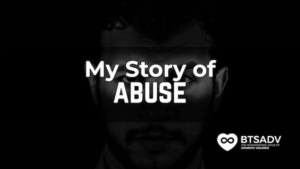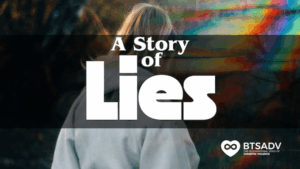No relationship is perfect
There is no such thing as the “perfect relationship.” Human beings by nature are imperfect, and their relationships are the same. Subject to occasional mood swings, clashes in personality, priorities, misunderstandings, and external stressors. However, arguments or disagreements that occur within healthy relationships are isolated incidents. When they happen in unhealthy relationships, they are part of a bigger pattern of power and control. Furthermore, they are exceptions to the normal dynamic built on trust, respect, compassion, and communication. Even though each person might not always agree with the other, they do not seek to undermine each other’s confidence, break trust, or inflict harm.
What is an unhealthy relationship?
Unhealthy relationships, whether they are considered toxic or abusive, are built on a regular pattern of tension. They include lack of respect, ignoring partner boundaries and needs, aggression, and combativeness that keep the relationship in a state of permanent stress and chaos. Both toxic and abusive relationships often leave at least one of the partners feeling insecure, unsupported, unappreciated and fearful. The lack of stability can radiate out to affect other areas of their lives. Including other interpersonal relationships, education, parenting, and the work environment. It may also leave someone feeling hesitant in pursuing their dreams, continuing education, going after a promotion, writing a book, and so forth – out of fear their partner will criticize, discourage, and refuse to support them.
Will the unhealthy relationships change?
It is important to recognize that even if you have tried to communicate that the relationship is hurtful to you, the dynamics may not change. In the case of toxicity, one of the main underlying factors is linked to behavior patterns and personality disorders. The person may not be aware exists. Some may feel a sense of entitlement or lack of empathy. Thus lacking awareness of the way they are acting in the relationship and how it affects their partner. Counseling may help some partners in a toxic relationship, but as some of the dynamics occur as a result of deeply ingrained behavior patterns, the risk of these toxic behaviors resurfacing even after therapy is relatively high.
When the unhealthy relationships become abusive
In cases of domestic violence, the dynamics are somewhat different. Abusers make deliberate choices as to how to they treat their partners, and therefore, all behaviors surrounding the choice to abuse are tailored to help keep their secret through shame, intimidation, and manipulation. Forcing their partner’s silence helps abusers evade the consequences of their actions and maintain the control over their victim. Confronting abusers about their behavior is never safe, as it always carries with it a risk of retaliation against the victim. Couples (or individual but concurrent) counseling is never a safe option, as the victim is at risk of retaliation any time they disclose their partner’s behaviors. Anything that threatens to undermine their control and out to them to others automatically adds the danger of harm to the victim.
Signs of Unhealthy Relationships
- Inability or refusal to commit to a partner
- Frequent breakups and makeups
- Pervasive sense of insecurity and lack of support
- Dishonesty and evasiveness
- Manipulation to force or trick a partner to agree to something
- Feeling constantly on guard and concerned about partner’s behavior
- Drug and alcohol abuse
- Systemic lack of support or deliberate roadblocks to growth or pursuing goals
- Refusal to respect boundaries or needs in the relationship
Signs of Abuse
- Open expression of jealousy over time spent with family or friends; limits the time you spend with them or how often you communicate
- Insists on accompanying you everywhere you go, including to places their presence is inappropriate or not allowed
- Monitors your whereabouts by excessive calls or texts; asks for pictures to prove where you are; tracks you using GPS, keylogging software, or other means
- Monitors your calls, reads texts and emails, listens to voicemail, and opens your mail
- Restricts or blocks access to family transportation, finances, and lines of credit; confiscates paychecks; forced accounting of all spending regardless of insignificant amounts; unrealistic allowance for necessities
- Forces you to be the sole breadwinner or does not allow you to work
- Uses of the threat of harm (against you, children, pets, or family) to coerce you into doing something
- Throws objects near you
- Criticizes, insults, and intentionally demeans you to undermine your self-confidence; puts you down in front of others; uses gas lighting to confuse and manipulate you
- Controls what you wear (clothes, makeup, jewelry, and hairstyle)
- Leaves you stranded in unfamiliar places; locks you out of the residence; holds you against your will
- Engages in sexual abuse, rape, or coerces you into things you are not comfortable with; forced pregnancy
- Physically hits you (pushing, slapping, punching, kicking, dragging by the hair, using weapons, or any other means of assault)
How to Leave an unhealthy relationship
Regardless of whether you are experiencing an unhealthy relationships or domestic violence, great care needs to be taken when leaving the relationship. Typically, toxic relationships may not indicate the possibility of abusive retaliation. However, it is not uncommon for toxic relationships to bear hallmarks of abuse. Thus, when ending an unhealthy situation, it is wise to let family or friends know and to do so in an environment that enables you to call for help if your partner retaliates.
If you are experiencing domestic violence and planning to leave, it is imperative that you do not alert your abuser to your intentions. To end such a relationship means that you are stripping away their control over you, and the likelihood they will retaliate is very high. Leaving is dangerous – nearly 75% of domestic violence fatalities occur when a victim attempts to leave.
Create a safety plan that details whom to call if you need help, code words to use so your family will know if you or your children are in danger, and safe people with whom police, advocates, educators, and employers may communicate if you are harmed or cannot be reached.
Who to ask for help
If possible, ask a friend or family member to store credit cards, money, medications, clothes and toiletries, and identification documents. In some situations, abusers maintain control over access to these items, and it may not be safe to get access to it. Also, try to have someone outside your home hold on to photos and medical documentation of injuries. These are helpful when applying for protective orders or having an abuser arrested and charged.
Once your physical and safety needs have been met, reach out for counseling and join a local support group if one is available. Doing so will give you a safe place you can share your experiences and concerns without fear of judgment. If you do not have support groups locally, visit the main BTS Facebook page. You will have access to news, blogs, and other survivors’ stories. In addition, you may send private messages via Facebook Messenger and inquire about closed BTS groups available for you to join.
If you are unsure of whom to talk to, several domestic violence organizations operate hotlines, including BTSADV (855-287-1777) and the National Domestic Violence Hotline (1-800-799-7233). You may also search domesticshelters.org for help in the US and Canada.


